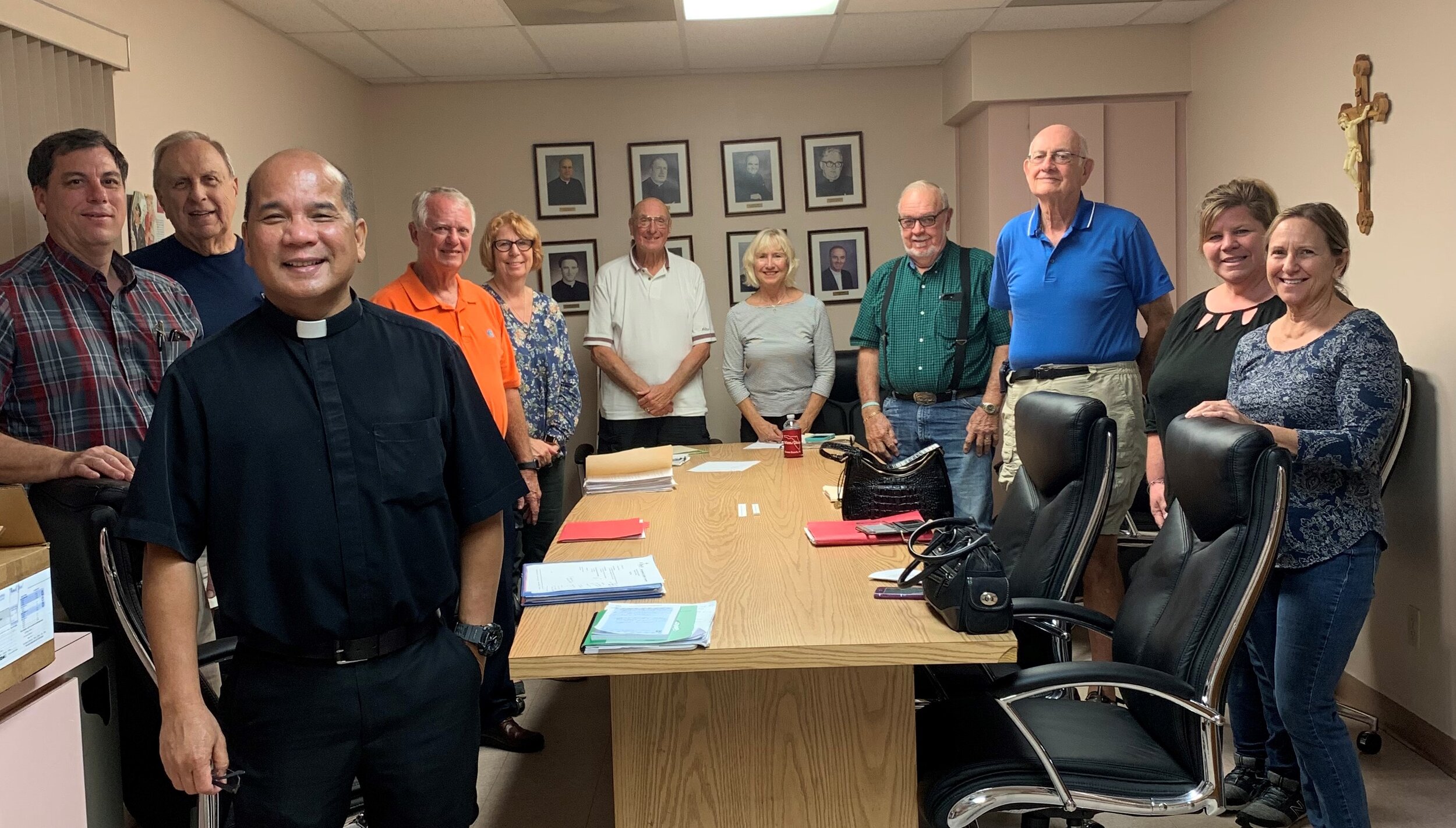What is a Parish Pastoral Council?
This could be a good “refresher” and opportunity to “pray for” and “bless” our Council for this coming year.
Our experience in a democracy and its politics sometimes poorly prepares us to understand the nature of a “parish pastoral council”. At times some see it as a “mini-House of Representatives”; some see council members as “little pastors”, “in charge” or “staff members”. Or the impression is that the Council is a “parallel administration” to a parish staff; or they are the ones who “make decisions”.
Their function, as established by the Church, is one of participating in the apostolate of the pastor. They are not “strictly” speaking “representatives” of the parish; rather, they offer to the pastor a “wisdom” that emerges from the parish and which does not depend on any level of expertise, but their own faith and God’s guidance. They help the pastor to know the community and by means of their study, research and reflection share with the pastor who “consults” them for that advice. If the Council “makes decisions”, it is in terms of formulating their agreement, input or consensus on an issue they have prepared for the pastor. In a directive taken from the Decree on Bishops (Vatican II) there is offered this guidance:
“The function of this council will be to investigate and to weigh matters which bear on pastoral activity, and to formulate practical conclusions regarding them.”
This directive expresses the three-fold function of the Council:
· To investigate the pastoral reality;
· To reflect on what has been learned;
· To recommend sound conclusions.
Totally essential to the health of a Parish Pastoral Council is a pastor who is consultative, who sees that his pastoral care of a community is necessarily linked to a dialogue with those called upon to share in his spirituality as the pastor, to aid in his apostolate as pastor.
This is why a parish pastoral council does not deal with lights, parking lots, finances, etc. A parish has its appropriate professional staff persons for those responsibilities. In a parish there can be other structures or associations of committees which attend to certain specific activity functions or programs which are part of the parish administering its living. However, parish pastoral council members are to be totally “free” of those so to be available to the Pastor who seeks to know the parish. Much of this happens through pastoral planning.
“The Parish Pastoral Council serves the apostolate of pastor. It aids him in the exercise of his ministry of parish leadership. It helps by investigating under his direction some aspect of the parish reality, reflecting on it, and recommending to him its conclusions. He consults it, in short, to do pastoral planning. How do we make parish pastoral councils more “pastoral”? The first step is to help Catholics understand consultation in the Church. The Church does not recommend that pastors establish councils to ease their workload and delegate to the laity what they are not able to do themselves. Nor does it propose councils as a way of managing the parish or coordinating ministries. No, it promotes councils because it wants pastors to make wise decisions. It wants pastors to draw upon the good sense of parishioners so that decisions are prudent and adapted well to the community’s needs. After the council has recommended its conclusions, the pastor may implement them using parish staff members or volunteers. He may even call upon council members to help. But strictly speaking, implementation belongs to him, no to them. The pastoral council is not an executive body….it does not coordinate parish organizations…it is rather a consultative body that serves the pastor’s apostolate by dedicating itself to pastoral planning with him.” (Making Parish Councils Pastoral, Mark F. Fischer)
